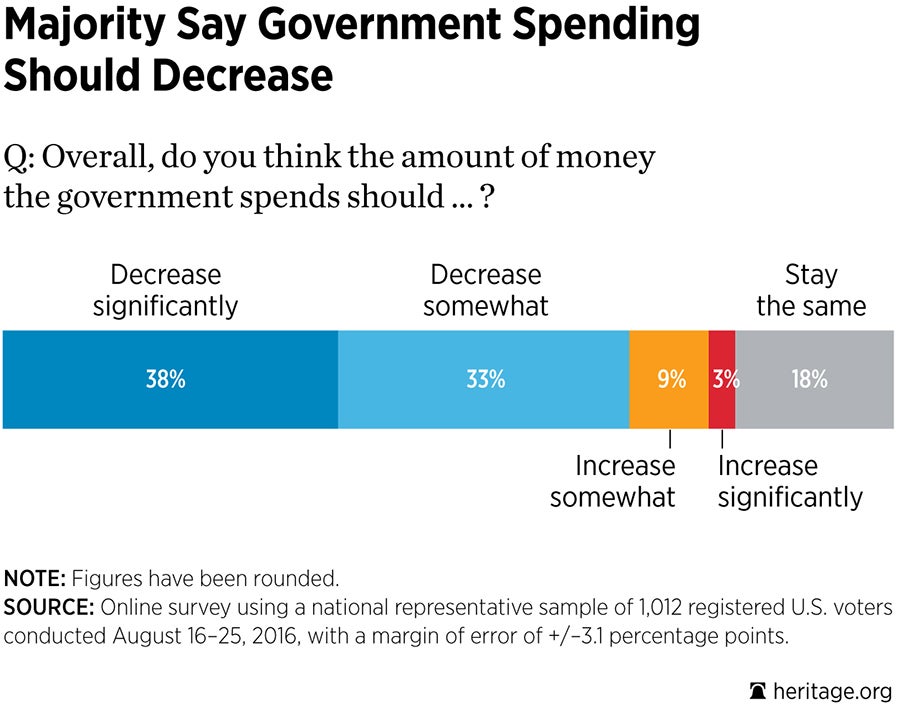Messaging Priorities
Untrustworthy government spending
- Special interests, waste, corruption, and extravagance.
- Common-sense changes and discipline in Washington like firm, honest budgets and closing loopholes increase accountability.
A vision of sustainable spending
- Tie policies to a stronger economy.
- Connect economic benefits like reducing the deficit and taxpayer burden and stimulating the economy to personal benefits like greater opportunity, more money, and an improved quality of life.
70% Say Government Spending Should Decrease
Moreover, 9 in 10 agree that the government’s current spending practices are harmful to the economy (86%) and unsustainable (90%).

Americans Portray Reluctance over Large-scale Changes
Despite support for lower spending, when given the choice, Americans favor spending cuts over time (80%) rather than all at once (20%). They also prefer a large number of smaller cuts (71%) to a few large cuts (29%). While high government spending is unpopular, sustainable spending is unfamiliar, and the path to it may seem daunting to Americans.
Jumping the Hurdles to Sustainable Government Spending
To help overcome reluctance, those who are interested in putting America back on a sustainable path should focus on common-sense changes in how Congress views and handles budgets; the strengthening effect of lower spending and debt on the economy; and the strong ties between the overall beneficial impact of lower spending on personal benefits (like having more money to provide for their family and a better quality of life) and values like greater peace of mind and security.



